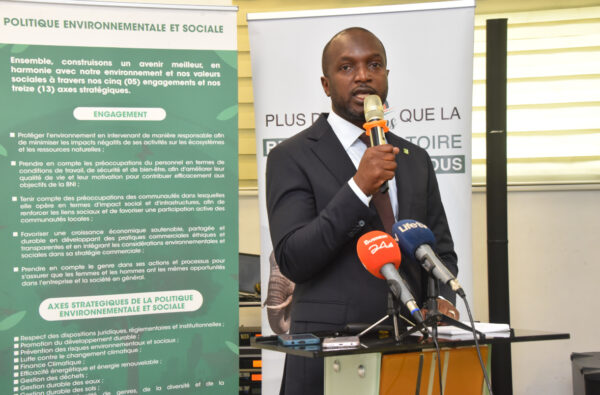The year 2024 marks a new stage in the strategic transformation of the National Investment Bank (BNI), illustrated by several major advances. In September, the Bank launched a pilot project for energy transition by installing solar systems at three of its sites, laying the foundations for its environmental strategy. This initiative is part of a broader dynamic of sustainable development, culminating in the accreditation of BNI to the Green Climate Fund in July 2025. This prestigious status grants the Bank access to an international fund dedicated to financing ecological projects, strengthening its position as a key player in green finance in Ivory Coast, as reminded by the CEO of BNI, Youssouf Fadiga, during the presentation of the 2024 financial results on Thursday, July 3.
Financially, BNI has shown remarkable performances. Between 2018 and 2024, the Net Banking Income (NBI) recorded a growth of +215%, with an annual average of +21.1%, the result of a strategic restructuring and the rigorous implementation of the “Excellence 2021” and “Performance 2026” plans. While the period 2004-2018 was marked by financial instability (with a cumulative net result of -28.39 million dollars (15.8 billion FCFA), the Bank reversed the trend by achieving 289.12 million dollars (160.9 billion FCFA) in cumulative net profits between 2019 and 2024. These results reflect a solid and controlled increase in power.
For the year 2025, the Board of Directors has set ambitious objectives, including a 25% increase in NBI and an increase in deposits of 3 billion dollars (1,673 billion FCFA). This growth will be based on a strengthened commercial strategy, focused on mobilizing long-term resources, particularly from state-owned companies, private enterprises, and individual clients. The deployment of Digital Banking, the development of cash management devices, and the expansion of the branch network aim to consolidate the deposit base and expand the customer base.
On the credit side, BNI is counting on the dynamism of leasing, the revival of factoring, and the consolidation of the real estate and PACTE sectors to stimulate activity. At the same time, the Bank plans to overhaul its e-Banking, electronic payment, and treasury management services to improve service quality and accelerate processing. Internationalization is also on the agenda, particularly through offers aimed at the Diaspora, in synergy with its subsidiaries. With these levers and rigorous governance, BNI seems solidly positioned to join the top three in the Ivorian banking sector by 2026.


